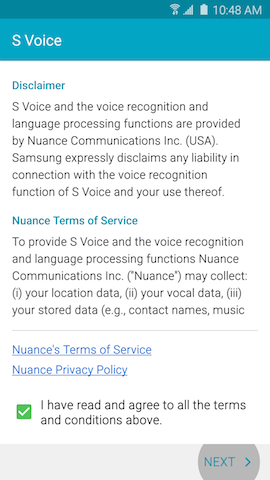What to Expect in the Samsung Galaxy S8’s Upcoming AI Digital Assistant

Image credit: Samsung via Wikimedia Commons
Samsung is set to launch an AI-backed digital assistant with its flagship smartphone for 2017. The Korean tech giant, on Sunday, announced that its upcoming successor to the Galaxy S7 will come with an enhanced artificial intelligence service that will allow users to order food or do other tasks without the need to go through a third party application. Samsung Electronics Vice-President Rhee In-jong said that it is an open AI platform that “will bring about a totally new paradigm.”
Samsung’s AI digital assistant will be based on work created by Viv Labs, a company specializing in artificial intelligence. This company has a proven solid track record in the field of AI, being the maker of the well-known Siri, which was obtained by Apple some 6 years ago. Viv Labs, on the other hand, was acquired by Samsung just last month.
AI Platform to Do Things Directly
It’s worth noting that this new Samsung-exclusive digital assistant will be making use of Viv’s already existing strengths instead of doing a revamp. Viv was introduced to the public May 2016 at Disrupt NYC as an open intelligent personal assistant software that can accept external plug-ins and handle complex queries. Unsurprisingly, it was hyped as the new AI assistant created by the makers of Siri.
One of the highlight features of Viv is its ability to seamlessly bring together third party services. It can serve as a one-stop-shop. As Rhee In-jong said in an interview with Reuters, “developers can attach and upload services to our agent.” The system becomes smarter as more third party services are attached to it. Even better, third party service providers are expected to find it easier to have their services integrated into the agent.
Current Samsung smartphones, tablets, and wearables don’t come with the native ability to allow users to directly order pizza or coffee. They can’t allow users to make voice-based purchases or do other similar tasks. They can only do it through third party applications. The new platform is set to change this with greater efficiency and simplicity for users and developers alike.

Image credit: Viv via Wikimedia Commons
How It Differs from Siri and Other Digital Assistants
It’s inevitable for Samsung’s upcoming digital assistant to be compared to Siri. After all, Siri remains to be the most popular voice-based digital assistant at present, even though its lead has already been significantly reduced with the introduction of Google’s digital assistant and Cortana. But how different is Viv from Siri?
One major differentiating of Viv as compared to Siri and other digital assistants is that it writes its own code. It employs a patented exponential self-learning system, different from the linear programmed systems used by Siri, Cortana, and Echo. Linear programmed systems focus on the intent attached to predefined words or phrases which come with a hard-coded connection to a domain expertise. With Viv, the process only needs a few lines of seed code to be able to establish the domain, taxonomy, and ontology in handling a word or phrase.
The system that Siri, Cortana, and Echo have involves the hard coding and siloing of each task or skill in the software, with which connections to the whole custom lexicon of domains is usually minimal to none. The system is restricted when it comes to the quickness and breadth it can scale. Each silo is still able to connect to related taxonomies and ontologies but the efficiency leaves much to be desired. Viv is designed to address these limitations. It also creates the advantage of simplicity for the system and developers. The team behind Viv describes it as a “dynamically evolving cognitive architecture system.” It is designed with ease for developers in mind.
Viv uses a more radically advanced form of the self-modifying code that has been around since the 60’s. This is an AI-backed digital assistant that can literally program itself and learn more as it is used and with more third party inputs. It has lines of code that is bound to eternally be dynamically evolving. It addresses the constraints of digital assistants like Siri in understanding more complex and longer sentences involving several intents. Check out this article for more discussion on how Viv is better than the current bunch of digital assistants.
Specific Features and Capabilities
Unfortunately, at the time this post was published, Samsung has not yet released information regarding the specific features of its upcoming digital assistant. There are no details yet regarding the specific tasks it can do. The company, however, is expected to release its 2017 Galaxy S flagship device in spring so leaks or new information are expected to be revealed soon.
How about S Voice?
Samsung already has a voice-based digital assistant, its competitor to Siri, is known as S Voice. Obviously, it failed to gain traction so it is set to be retired with the introduction of the new AI digital assistant. It will not be integrated with the new digital assistant as its voice recognition and language processing functions are from a different developer and Viv is an open AI platform.

Image credit: Samsung
Samsung Needs an Ace
After the Note 7 debacle, Samsung needs something to bring back the customers it has lost and to prevent more of its loyal customers from going to other brands. The company expects losses pertaining to the Note 7 problem to be around $5.3 billion minimum. To recover, it needs something to make its products more attractive in the highly congested smartphone and mobile computing market. The new digital assistant platform, though, is surely not enough to be the Ace Samsung needs but it can be one of the viable options worth trying.